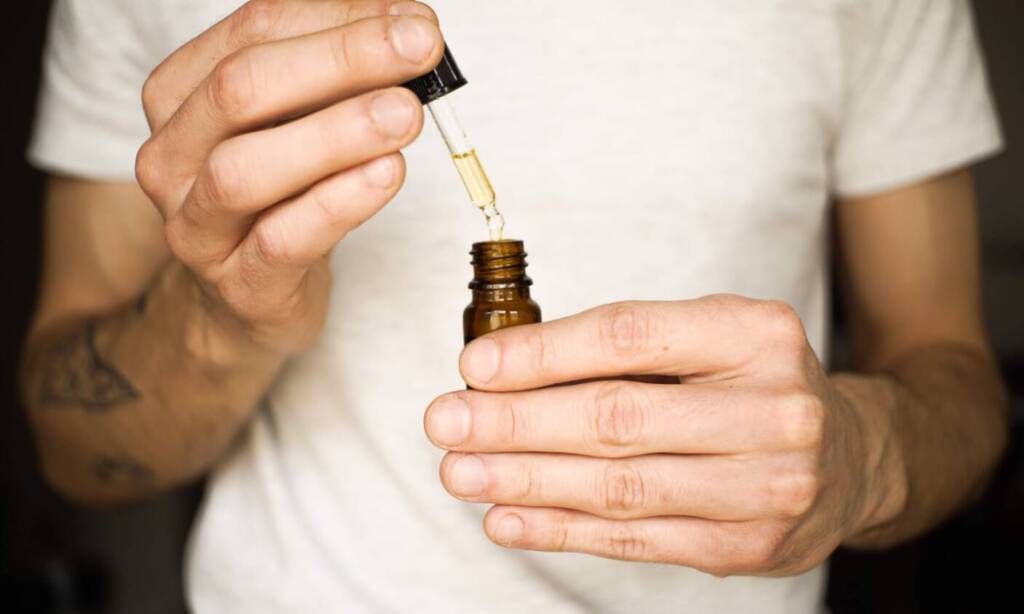
The Skyrocketing Health Benefits of CBD + Adaptogens
This article originally appeared on Cannabis.net and has been republished with permission.
Cannabidiol (CBD) seems to have been a hot topic on the wellness front for quite some time. Finally, the non-psychoactive compound of marijuana is touted for its anti-stress and anti-anxiety properties without getting you high. It has a cult following, and with good reason—there’s plenty of data and evidence that CBD works. It’s everywhere these days, from CBD capsules to oils, drinks and edibles, relieving stress has never been easier.
But adaptogens are in the limelight with CBD these days.
Photo by Bankim Desai via Unsplash
Adaptogens have been known for hundreds of years, particularly in Asia and India and among those who follow the principles of the Ayurvedic lifestyle. They refer to plant species that possess special properties to help the body cope with stress, regulate healthy functions, and regulate hormone levels. Apart from that, they have numerous other health benefits such as: B. fighting fatigue, reducing inflammation, improving sleep and improving cognitive function even when we are under stress, among other things.
Benefits of combining CBD and adaptogens
Popular and common adaptogens that you will easily come across on the market are the following:
Ashwaganda: Widely used for centuries to treat stress and anxiety and its use in Ayurvedic potions. Ashwagandha is a root that is also used in some Eastern delicacies.
Rhodiola: Rhodiola is an adaptogen valued for its ability to provide energy. It is even said that the Vikings consumed rhodiola before embarking on their raids. A 2013 study found that amateur cyclists who consumed the plant finished a timed race faster than the placebo group and with reduced heart rates.
Tulsi: Also known as the queen of herbs or holy basil, this shrub is popular in Ayurvedic tradition for its ability to reduce anxiety and increase focus. It can also help reduce stress and depression while boosting immunity through the regulation of hormones and healthy responses.
Reishi mushrooms: Reishi mushrooms are known for their antioxidant properties. They are taken to support immunity but can also help keep skin looking young.
Other popular adaptogens include cordyceps, chaga, and tocos.
Most adaptogens are too bitter to consume on their own, so they’re typically made into a powder to add to drinks or smoothies, or as capsules. When consumed, they are said to work with the hypothalamic-pituitary-adrenal (HPA) axis, which is made up of several hormones, receptors, and glands in the body, while cannabinoids interact with our endocannabinoid system.
RELATED: What Is Ashwagandha and How Can It Be Used With Cannabis?
Adaptogens work with the HPA to restore homeostasis and balance in our system, especially when we feel unbalanced due to physical, emotional, mental, or environmental stress. Adaptogens can, in many cases, help reduce the production of stress hormones and replenish them when there is a deficiency. Adaptogens are meant to be taken long-term to give stability to our internal systems rather than being taken as a patch when we’re feeling ill, so you probably won’t feel many benefits from just using them once.
 Photo by Cristi Ursea via Unsplash
Photo by Cristi Ursea via Unsplash
On the other hand, immediate effects can be felt when using CBD to treat a variety of conditions such as anxiety, insomnia, panic attacks, and more, although you can also use CBD as part of a long-term holistic solution to improve overall health.
RELATED: The connection between Ayurveda, cannabis and psychedelics
However, the benefits of CBD and adaptogens clearly fill a huge void in Western medicine, so it’s not surprising that patients fall for their charms. You don’t even have to be sick to appreciate the benefits of CBD and adaptogens; They can be used to support your overall system.
Is It Safe to Combine CBD and Adaptogens?
Both cannabis and adaptogens are non-toxic plants that interact gently with the human body. But before you start taking adaptogens or combining them with CBD, there are a few things to keep in mind:
Talk to your doctor first: As of this writing, both CBD and adaptogens are not regulated by the FDA, particularly when processed into foods and beverages or taken as dietary supplements. They don’t have to work or prove their safety to be sold on the market. However, there are many brands out there that are both iffy and highly regarded, so make sure you do your research or ask for your doctor’s recommendations.
RELATED: A closer look at the ever-growing number of cannabis-mushroom products hitting the market
In addition, your doctor may also authorize you to take certain CBD and adaptogen products to ensure that everything in the ingredient list is safe for you. When shopping for adaptogenic products, it always helps to buy products with the USP seal on each jar, telling you it has been inspected by the United States Pharmacopia.
Drug Interactions: If you are already taking prescription medications, some or all of them may have undesirable side effects when combined with CBD and/or adaptogens. You should speak with a herbalist or naturopath to make sure it is 100% safe for you to take these ingredients along with your other medications. There are known interactions with prescription drugs, so don’t assume they’re completely safe, even if they’re natural.
Start with smaller doses: When trying out something new, it always helps to start small and work your way up. The same goes for CBD and adaptogens, so start with small doses unless you have consulted a doctor or naturopath who has given you permission to start with moderate doses right away. Some unwanted side effects associated with taking too many adaptogens too quickly are dizziness, headaches or nausea, while with CBD it can cause severe sedation and sleepiness.
This article originally appeared on Cannabis.net and has been republished with permission.

Post a comment: